Are you facing the challenge of learning the fundamentals of object-oriented programming in PHP? At the heart of this topic are the special references $this and self. These two keywords are crucial for working with objects and classes in PHP, as they control communication and access to instance variables and constants. Let's explore the distinctions and use of these concepts together.
Key Insights
- $this is a reference to the current object and is used in instance methods.
- self refers to the current class and is used to access static properties and methods as well as constants.
- The difference between $this and self is fundamental to understanding object-oriented programming in PHP.
Understanding the Reference $this
Let's start with the keyword $this. $this is a special variable that references the current object. When you access $this within an instance method, you can access all instance variables and methods of that specific object.
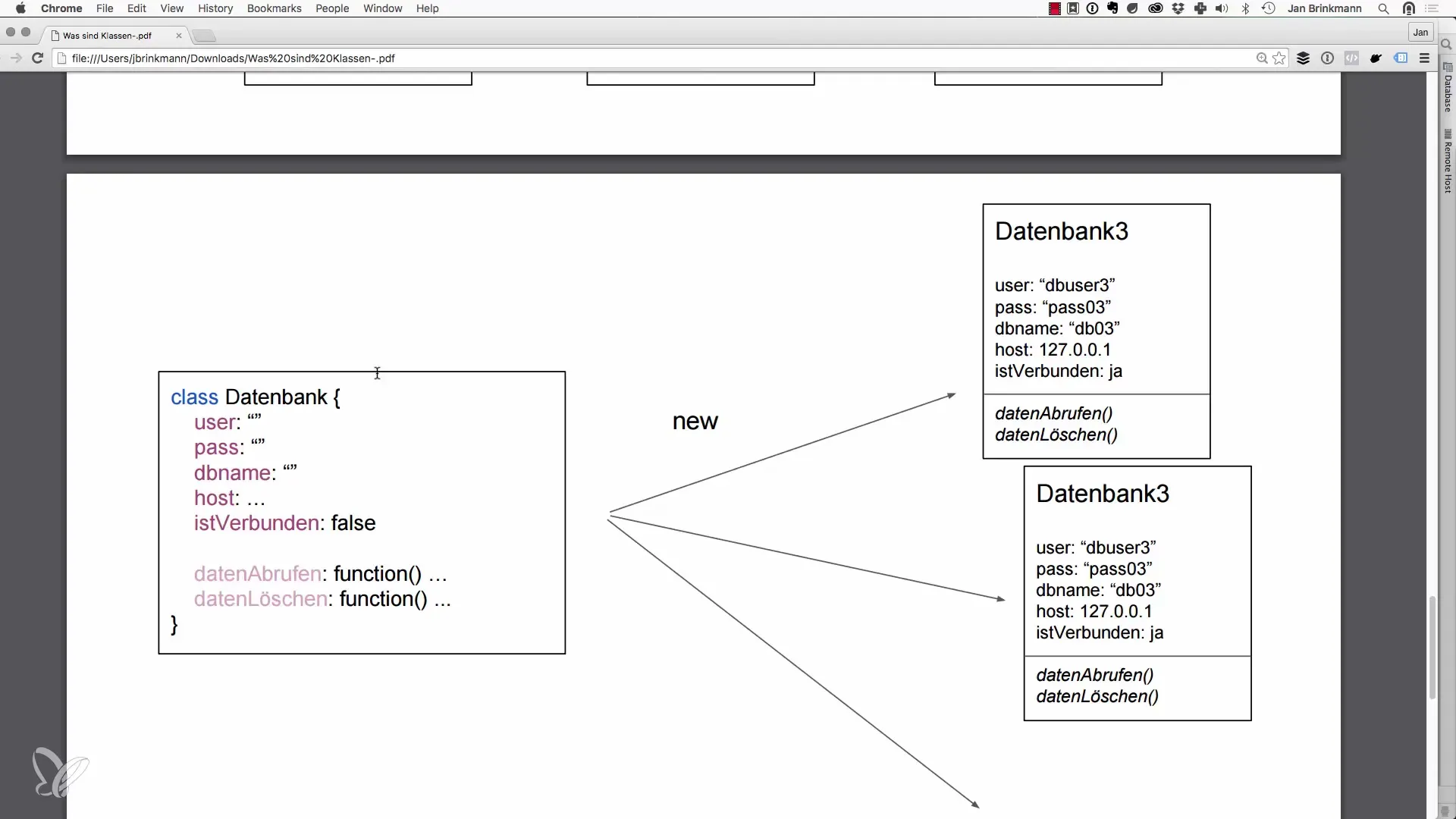
Suppose you have a class called Database that you are instantiating. Within a method of this class, you can access instance variables like User or Pass. This is done using $this->User or $this->Pass. These variables only exist in the context of the respective object, which is why $this is crucial.
It is important to know that $this represents a universal reference that always points to the current object. If additional objects exist, $this will context-dependently reference the respective object in which the code currently resides.
The Keyword self in Detail
The keyword self, on the other hand, is not limited to an instance. It refers to the class itself, allowing you to access static properties and constants of the class. Once again, let's consider the class Database. Suppose you have defined a constant within this class. You can access this constant by using self::Constant.
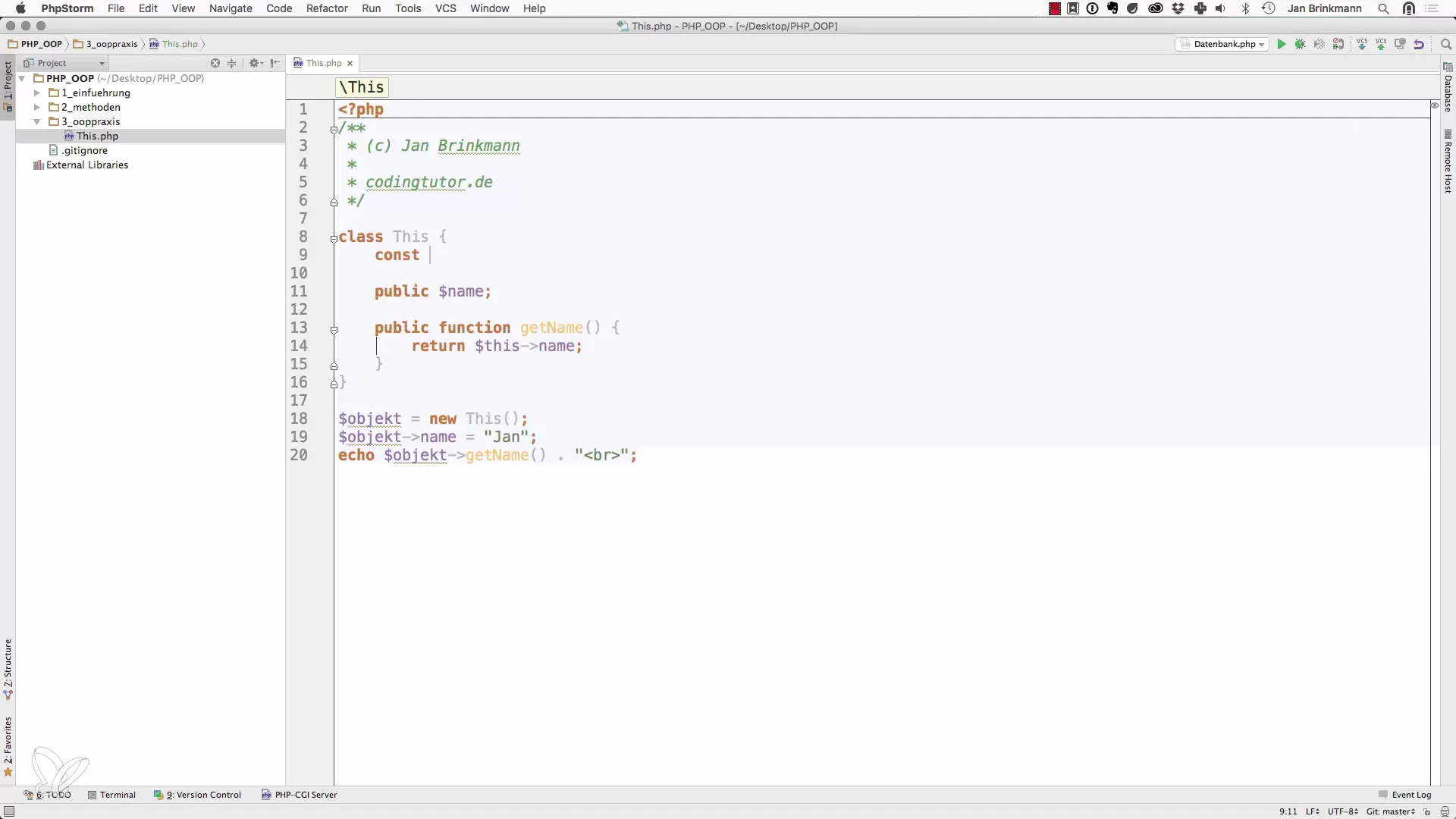
Note that self is especially useful for static methods and properties. Such variables exist once for the entire class instance, not for each individual object. This is a key difference from instance variables.
Of course, there is also the case where you want to access static methods or constants within a method of the class. In such a case, you use self::Method() to ensure that the access is done through the class and not through an instance.
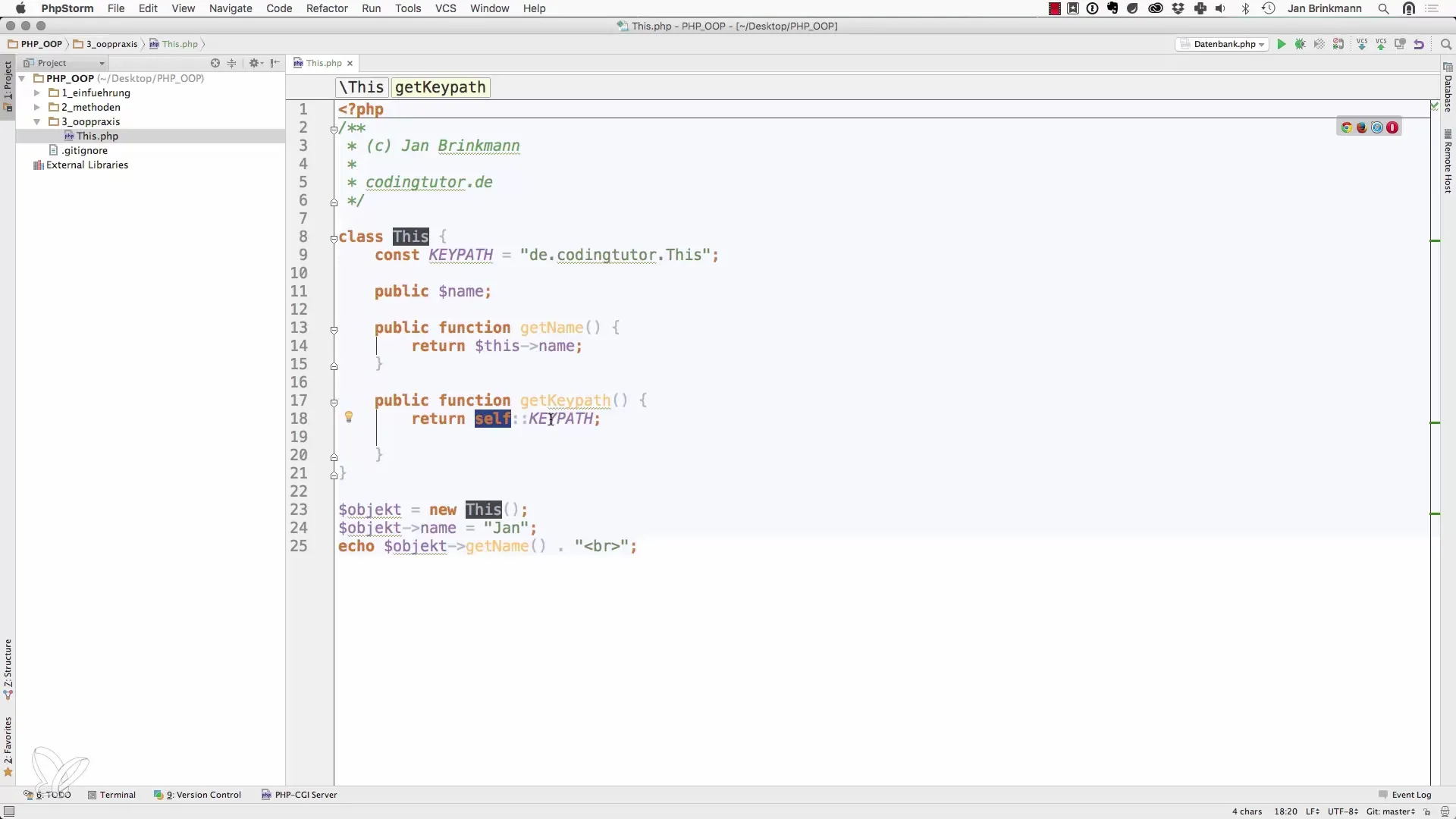
Making a Practical Example
Imagine you want to create a class SIS. Here is a simple example to demonstrate the use of both references.
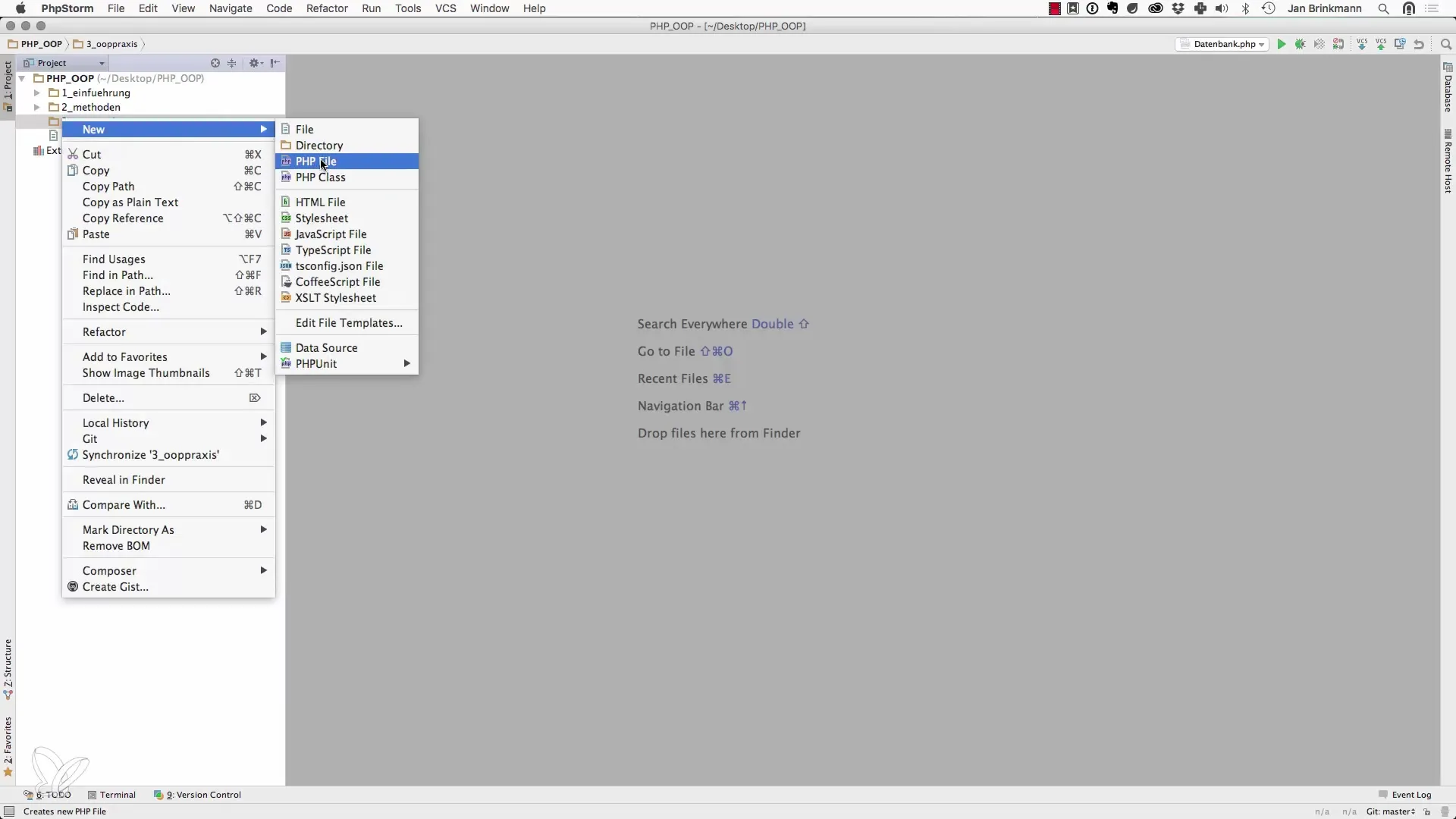
Within this class, we could define static properties and methods. Say you have a method getName() that uses an instance variable name. To access this instance variable, you would use $this->name.
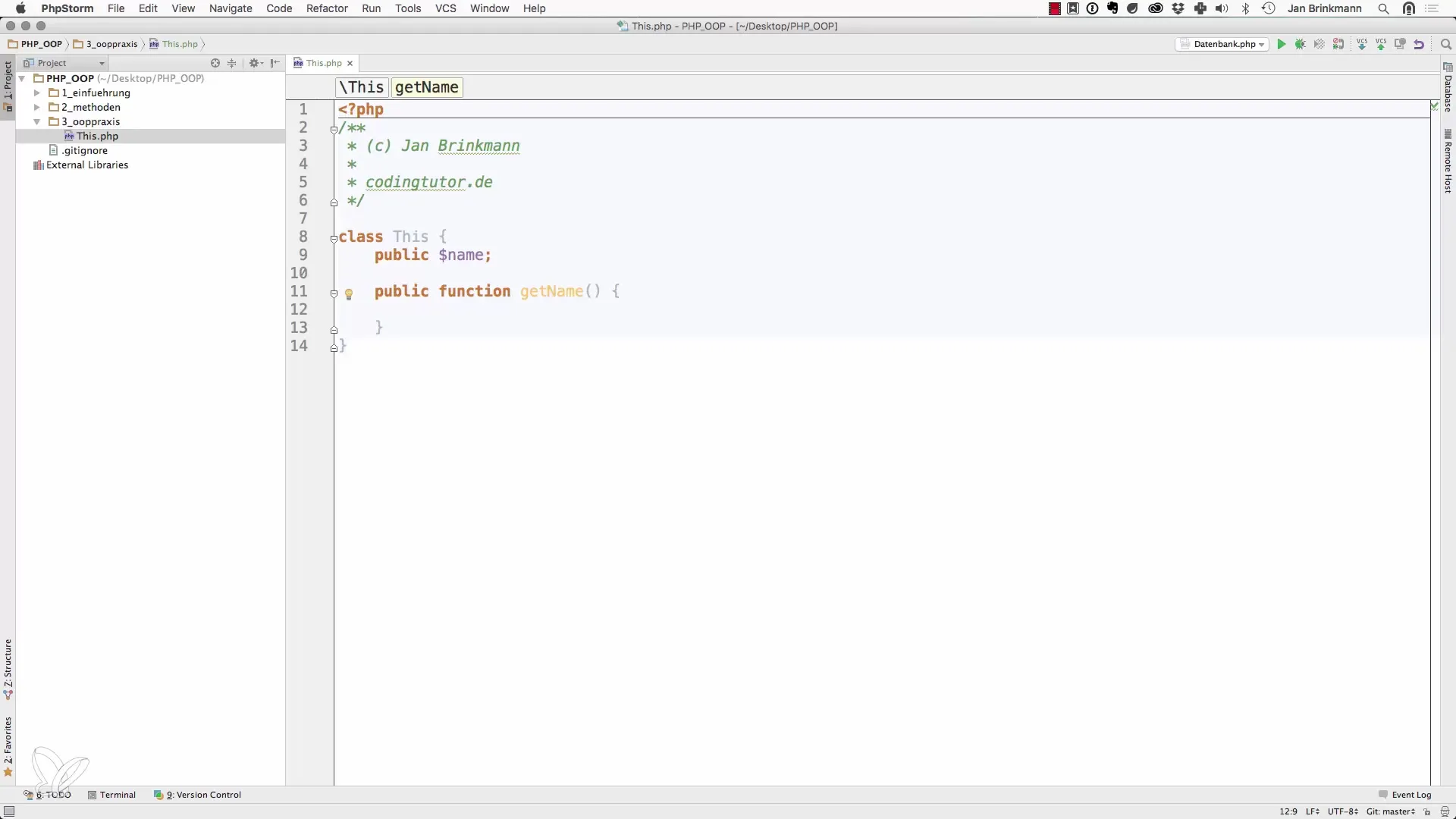
However, to access a constant KEY_PATH defined in the class, you use self::KEY_PATH. This ensures that you do not run into an instance conflict when accessing constants.
Finally, you can demonstrate that the references are working with an echo. You can easily output both the instance variables and the constant values to show that they are referenced correctly.
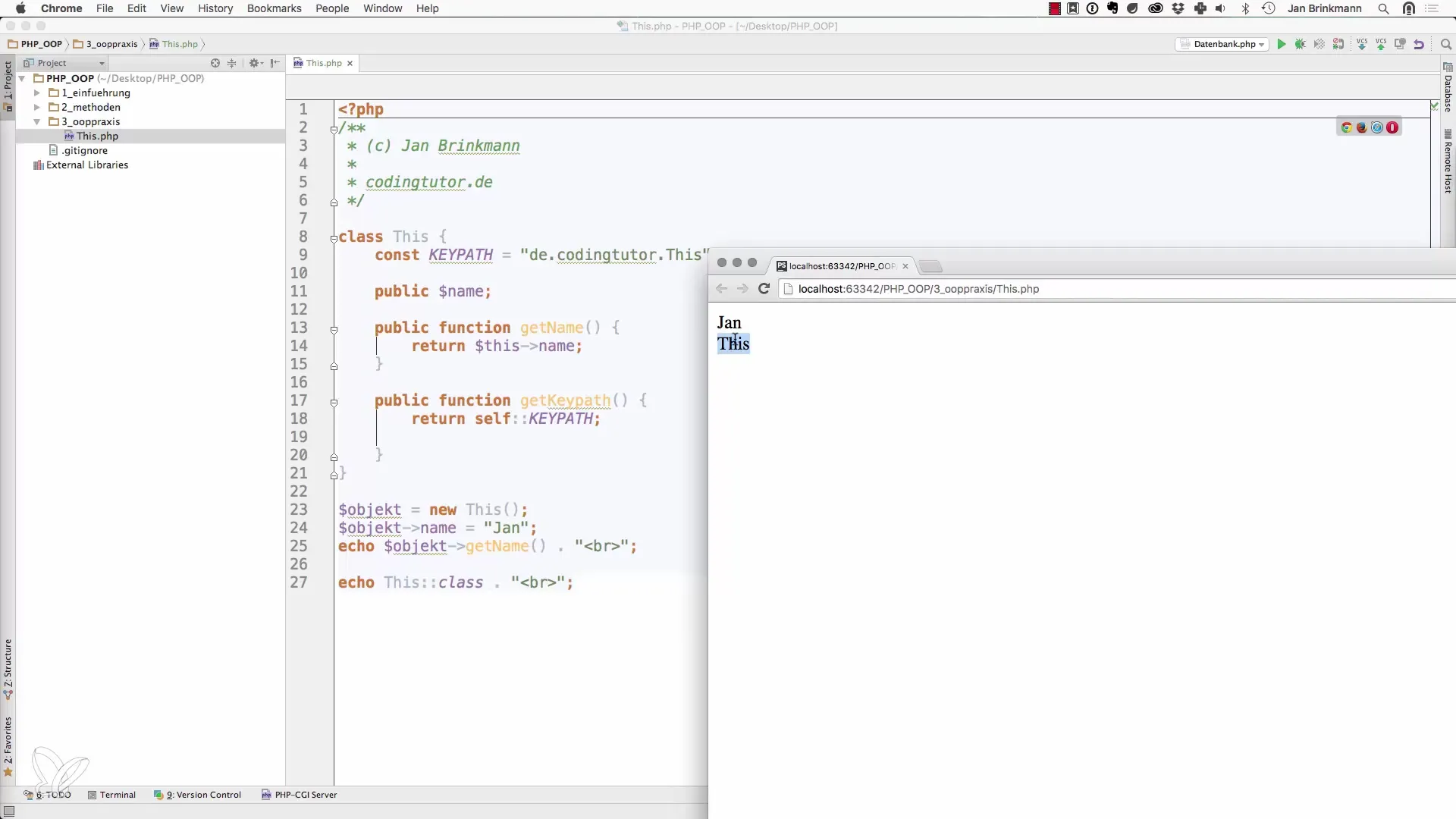
Summary – Understanding $this and self in PHP
In today's post, you learned the basics of the use and differences between $this and self in object-oriented programming with PHP. While $this specifically refers to the current object, self aims at the class itself. These concepts are fundamental for effective development in PHP.
Frequently Asked Questions
What is the difference between $this and self?$this references the current object, while self refers to the class itself.
When should I use $this?Use $this when you want to access instance variables or methods.
When is self useful?self is useful when you want to access static properties or constants of the class.
Is there a specific case for self?Yes, self is useful for accessing class members within static methods.
How can I ensure that I am correctly accessing instance variables?Use $this->variableName to ensure that you are accessing the instance-specific values.


